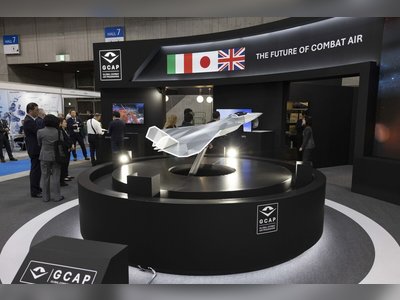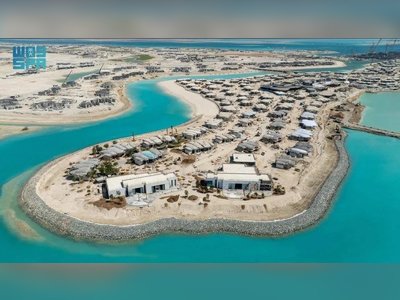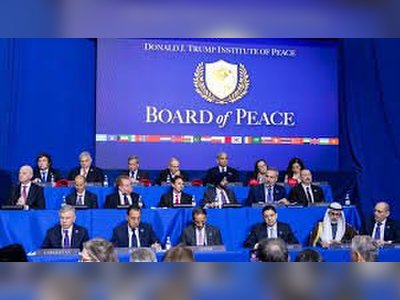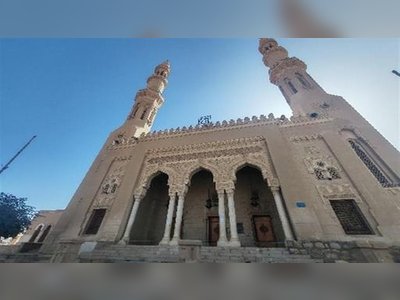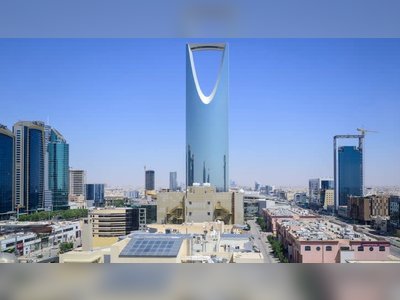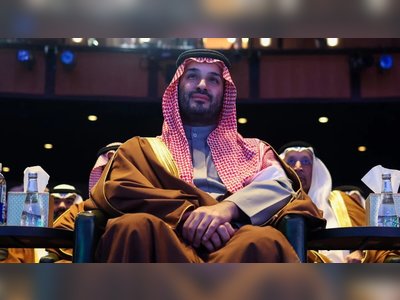
Arab League chief: Iranian-Turkish hegemony schemes aim at dividing Arab world into districts governed by militias
In an interview with Al-Ahram Editor-In-Chief Alaa Thabet, Ahmed Abul Gheit warned against Iranian and Turkish schemes which are aimed at obliterating the Arab national states
Arab League Secretary-General Ahmed Abul Gheit has warned against what he termed "the Iranian-Turkish schemes of hegemony" in the Arab region and their catastrophic consequences for Arab national security, noting that the current conditions in the region require more attention in order to preserve the interests of the Arab world.
In an interview with Al-Ahram Editor-In-Chief Alaa Thabet, Abul Gheit said these two regional powers, which are seeking to control the region's potentials and capabilities, are using “divide and rule” tactics, a policy that was once used by the colonial powers.
He warned against Iranian and Turkish schemes which are aimed at obliterating Arab national states and turning them into sectarian districts that can be controlled by armed militias.
Every erosion of an Arab state’s territory is a reduction in the sovereignty and independence of the Arab world as a whole, he said, pressing the need to fight this looming danger.
Responding to a question on the massive explosion in Beirut seaport last week, Abul Gheit said he immediately travelled to the city to view the damage caused. “Alas, the blast left the city resembling a war zone. It is a real national disaster," he said.
The devastation caused by the blast is a new addition to the dilemma of Lebanon, he said, as it is already suffering from political and economic crises. The situation in the country should not be left to sink any further, he added.
Abul Gheit offered to help Lebanon, noting that the Arab League has already sent shipments of humanitarian relief aid to Beirut and is doing its utmost to mobilise international support for the country.
After the blast, he worked, in coordination with the Lebanese authorities, to include an item on the agenda of the league’s Economic and Social Council (ECOSOC) pertaining to Lebanon, noting that such an item is very important for dealing with the impact of the widespread damage caused by the blast, and not only the urgent relief operations.
He asserted that the Arab League has vast potentials, “for through its specialised organizations and joint Arab action” it can help Lebanon handle the impact of the disaster.
Abul Gheit said that when he returned from his field visit to Beirut, he wrote a letter to the Arab foreign ministers to convey to them his assessment of the situation, update them on the outcome of his meetings with the country’s political leaders and brief them on his views regarding the urgent support needed by the Lebanese people in the current phase.
Switching gear to the Palestinian cause, Abul Gheit said the topic will remain a central issue in the Arab world, voicing hope that a new American administration, which may be elected in November, would realise that the so-called "American peace deal" is unacceptable, and that it would move to revive a new peace project based on direct negotiations between the two sides on the basis of the 1967 borders and with East Jerusalem as a capital of Palestine.
He also voiced his relief over the blocking of Israel's annexation plan, noting that various countries have rejected the plan, and describing it as "rashness" by Israeli Prime Minister Benjamin Netanyahu to come out of his political crisis by exacerbating tensions in the region.
The Arab League chief also noted that Arab countries and the Arab League have played a key role in standing against Israel’s expansionist plan through diplomatic contacts with all countries to warn against its dire consequences.
Responding to a question on the league's role in countering the Turkish aggression against Libya, he said that the situation in Libya has become very complicated in all its dimensions -- military, political and economic.
There are deep differences between the Libyan parties, Abul Gheit said, adding that they have their own different visions on emerging from the current stalemate. He noted that the danger of the conflict is increasing day after day in view of the various foreign military interventions and the use of mercenaries and foreign fighters in the country.
He asserted that the Arab League has adopted a clear stance regarding the settlement of the Libyan crisis, saying that such a settlement should be through a peaceful political track agreed upon by the Libyan leaders and under the sponsorship of the United Nations.
The solution to the conflict in Libya should not be a military one, he stated. “It should be an all-inclusive solution,” he added.
Abul Gheit also reiterated that such a settlement could never be reached in the presence of foreign interference and regional imperialistic schemes that threaten the country's security and stability, adding that all such interventions are totally rejected and condemned by the league.
He also said that the position of the international community has been made clear through the UN Security Council and all the countries and organisations which attended the Berlin conference.
In an interview with Al-Ahram Editor-In-Chief Alaa Thabet, Abul Gheit said these two regional powers, which are seeking to control the region's potentials and capabilities, are using “divide and rule” tactics, a policy that was once used by the colonial powers.
He warned against Iranian and Turkish schemes which are aimed at obliterating Arab national states and turning them into sectarian districts that can be controlled by armed militias.
Every erosion of an Arab state’s territory is a reduction in the sovereignty and independence of the Arab world as a whole, he said, pressing the need to fight this looming danger.
Responding to a question on the massive explosion in Beirut seaport last week, Abul Gheit said he immediately travelled to the city to view the damage caused. “Alas, the blast left the city resembling a war zone. It is a real national disaster," he said.
The devastation caused by the blast is a new addition to the dilemma of Lebanon, he said, as it is already suffering from political and economic crises. The situation in the country should not be left to sink any further, he added.
Abul Gheit offered to help Lebanon, noting that the Arab League has already sent shipments of humanitarian relief aid to Beirut and is doing its utmost to mobilise international support for the country.
After the blast, he worked, in coordination with the Lebanese authorities, to include an item on the agenda of the league’s Economic and Social Council (ECOSOC) pertaining to Lebanon, noting that such an item is very important for dealing with the impact of the widespread damage caused by the blast, and not only the urgent relief operations.
He asserted that the Arab League has vast potentials, “for through its specialised organizations and joint Arab action” it can help Lebanon handle the impact of the disaster.
Abul Gheit said that when he returned from his field visit to Beirut, he wrote a letter to the Arab foreign ministers to convey to them his assessment of the situation, update them on the outcome of his meetings with the country’s political leaders and brief them on his views regarding the urgent support needed by the Lebanese people in the current phase.
Switching gear to the Palestinian cause, Abul Gheit said the topic will remain a central issue in the Arab world, voicing hope that a new American administration, which may be elected in November, would realise that the so-called "American peace deal" is unacceptable, and that it would move to revive a new peace project based on direct negotiations between the two sides on the basis of the 1967 borders and with East Jerusalem as a capital of Palestine.
He also voiced his relief over the blocking of Israel's annexation plan, noting that various countries have rejected the plan, and describing it as "rashness" by Israeli Prime Minister Benjamin Netanyahu to come out of his political crisis by exacerbating tensions in the region.
The Arab League chief also noted that Arab countries and the Arab League have played a key role in standing against Israel’s expansionist plan through diplomatic contacts with all countries to warn against its dire consequences.
Responding to a question on the league's role in countering the Turkish aggression against Libya, he said that the situation in Libya has become very complicated in all its dimensions -- military, political and economic.
There are deep differences between the Libyan parties, Abul Gheit said, adding that they have their own different visions on emerging from the current stalemate. He noted that the danger of the conflict is increasing day after day in view of the various foreign military interventions and the use of mercenaries and foreign fighters in the country.
He asserted that the Arab League has adopted a clear stance regarding the settlement of the Libyan crisis, saying that such a settlement should be through a peaceful political track agreed upon by the Libyan leaders and under the sponsorship of the United Nations.
The solution to the conflict in Libya should not be a military one, he stated. “It should be an all-inclusive solution,” he added.
Abul Gheit also reiterated that such a settlement could never be reached in the presence of foreign interference and regional imperialistic schemes that threaten the country's security and stability, adding that all such interventions are totally rejected and condemned by the league.
He also said that the position of the international community has been made clear through the UN Security Council and all the countries and organisations which attended the Berlin conference.

